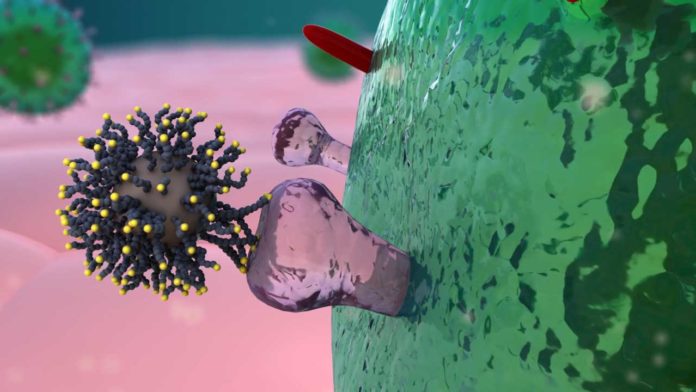A collaborative team of international scientists from the University of Manchester, the University of Geneva (UNIGE) and the EPFL in Lausanne, Switzerland has developed new antiviral materials made from sugar, to destroy viruses on contact and may help in the fight against viral outbreaks.
This discovery could lead to a promising treatment for diseases like herpes simplex (cold sore virus), respiratory syncytial virus, hepatitis C, HIV, and Zika virus, to name a few.
During experiments in the lab, scientists found that their new material can treat a range of viruses in the lab – including respiratory infections to genital herpes.
A virucide is an agent that deactivates or destroys viruses. The agents are extremely toxic to humans, and so cannot be taken or applied to the human body without causing severe harm. Scientists, in this study, have created viricides from sugar and paves the way towards the development of a new type of antiviral drug, which destroys viruses yet is non-toxic to humans.
Using modified sugar molecules, the team indicated that the outer shell of a virus could be disturbed, in this way destroying the infectious particles on contact, as contradict to just confining its growth. This new methodology has additionally been appeared to safeguard against drug resistance.
Scientists also engineered new modified molecules using natural glucose derivatives, known as cyclodextrins. The molecules attract viruses before breaking them down on contact, destroying the virus, and fighting the infection.
Dr. Samuel Jones, from The University of Manchester, said, “We have successfully engineered a new molecule, which is a modified sugar that shows broad-spectrum antiviral properties. The antiviral mechanism is virucidal, meaning that viruses struggle to develop resistance. As this is a new type of antiviral and one of the first to ever show broad-spectrum efficacy, it has the potential to be a game-changer in treating viral infections.”
Prof Caroline Tapparel from UNIGE Faculty of Medicine and Prof Francesco Stellacci from EPFL, the senior authors of the study, declared: “We developed a powerful molecule able to work against very different viruses; therefore, we think this could be game-changing also for emerging infections. This exciting new material can work to break down multiple viruses making for cost-effective new treatments even for resistant viruses.”
The research published in the journal Science Advances.
